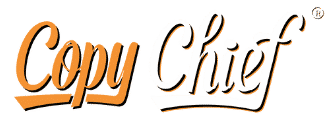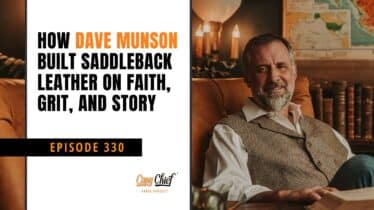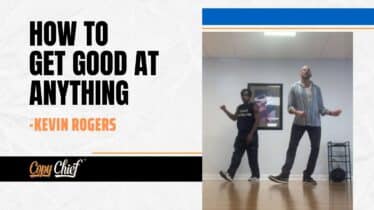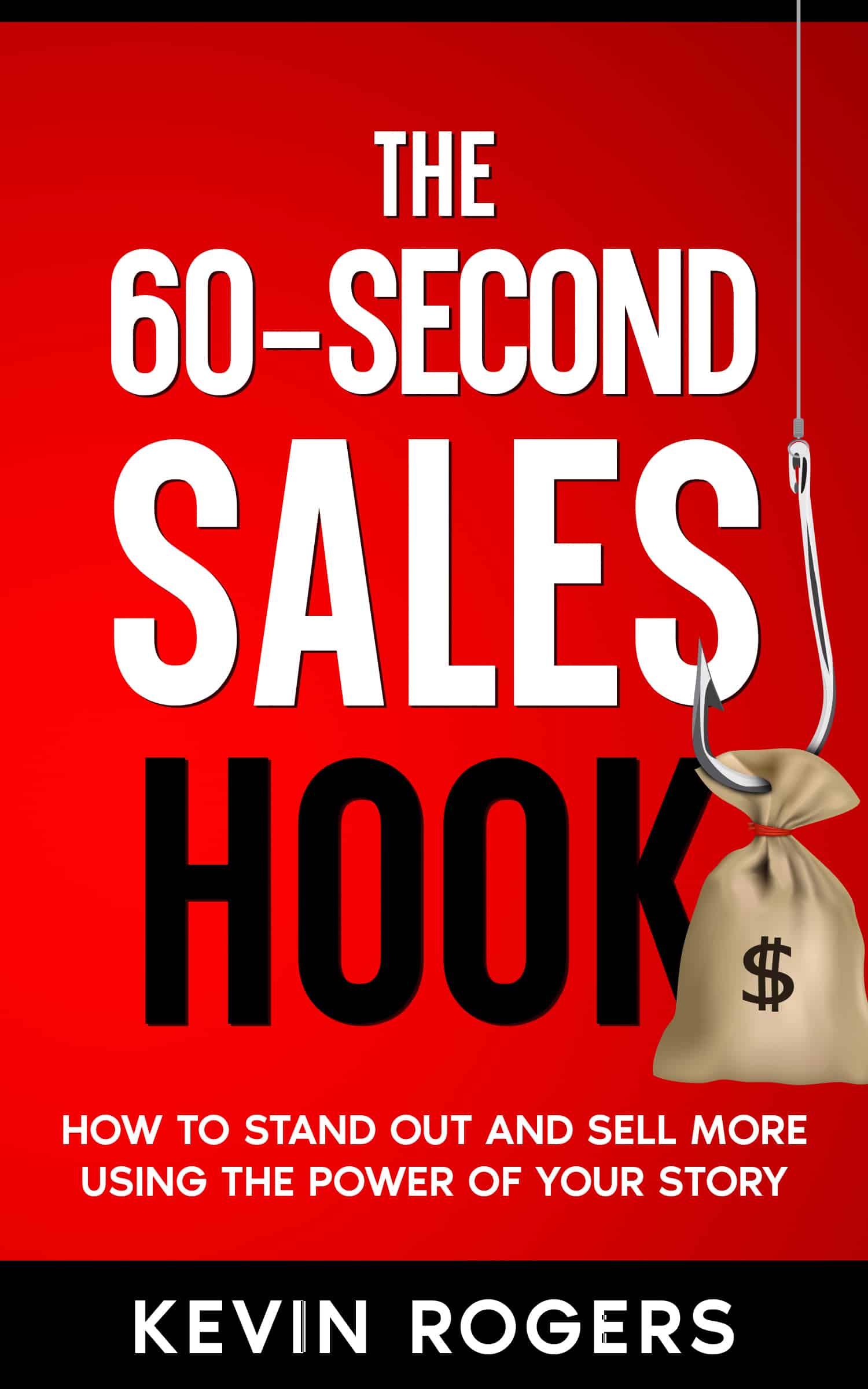
It thrills me to meet new copywriters at their enthusiastic best.
I love guiding them through to the next levels, helping them avoid the nasty traps that derail progress.
Looking back to when I first started, there are a few things I wish I’d figured out earlier. It would have saved me a lot of needless frustration, boosted my confidence and made the actual writing a lot more fun.
Here we go…
#1 – Fall in love with selling.
Most of us already love to write, because… if not, this would be a career choice of cruel torture. But frankly, writing is the less important part of the “sales in print” equation of a copywriter. If you feel “icky” about selling right now, then you probably have a narrow view of the art of making sales.
Sales is a fascinating skill. It’s something you’re doing in everyday life negotiations, whether you realize it or not.
Dive into learning the psychology of selling and persuasion and get to know yourself as a salesperson.
Practice persuasion techniques on your family and friends and see how incredibly they work when done right.
People actually appreciate being persuaded by people they like and trust.
Spend as much time learning to sell as you do on the practice of writing.
Copywriters are good with words, but we’re not paid to be “wordsmiths,” we’re paid to close the deal.
Anyone can write features and benefits.
To become a great copywriter, learn to love the art of selling.
#2 – Sharpen your focus.
When I started writing copy, Facebook was still something only college students used to plan parties.
That means there weren’t eleven thousand overnight gurus bribing me into their FB groups to show me their latest “ninja tactic.”
I had to actually go looking for information about how to write sales copy.
Can you imagine?
Here’s the thing… even then, in the infancy of YouTube, when people were asking “what’s a blog?” I STILL got overwhelmed at the amount of content I found.
And it was a big problem.
I recall several times in the early days of my freelance career after reading a mind-expanding article on Carlton or Makepeace’s blog, I’d restart a piece of long copy from scratch so I could add in the new tactic I picked up.
It was great to be learning, but it was costing me serious time on projects. So, I can only imagine your plight of info-overwhelm coming into the copy game today.
My advice? (This will be the hardest habit to break, but it will give you the most immediate reward.)
Self-impose a temporary ban on new tactics.
Look, I get that writers are curious. We crave information like cute puppies crave Instagram likes.
But if you can skip typing “I’m in” the next time Johnny Rockstar asks if he should start a Facebook group where you watch him drive around in a rented Lamborghini…
… and instead create a bubble of your own making where you study ONE QUALITY RESOURCE AT A TIME… then put what you learn into practice… you will excel beyond the “In” crowd so fast they’ll think you went down to the crossroads and sold your soul to the devil. Promise.
#3 – Become a pro before going pro.
The pro code is simple: Be where you said you’d be, when you said you’d be there, having done what you promised to do. (That’s how John Calrton first described it to me.)
Simple to understand, but sometimes difficult to follow. Especially when you’re under pressure to meet a hard deadline and shit is blowing up around you.
If, like me when I started, you have a full-time job and a family (I had two kids under 3) that need your attention, it’s going to take some serious discipline to find time to do the work you actually love.
So, it’s imperative that you develop your own productivity skills.
There are a million books on productivity and what they teach probably works wonders for some people, for a while.
Until the next thing comes along.
Reality is, anyone who is super productive got that way by taking a few bits from several sources and finally creating a system that works for them.
Being productive ultimately boils down to four key things…
(1) finding a comfortable space
(2) free of distraction
(3) where you’re able focus, and
(4) keep a consistent work schedule.
Those four things are achieved a little differently by everyone…
Some people find it comfortable to sit cross-legged on a couch with a laptop in their lap. I need a desk with the keyboard at a height just above the elbow.
Some people crank rock or EDM to focus. I need focus music (like Brain.fm) specifically engineered to help my brain concentrate.
Some people leave notification pings on while writing. That’s dumb. Don’t do that.
Keeping a consistent schedule? Critical. My best tip: get buy-in from your family or roommates. Let them know this is important work time and “thanks for thinking of me, but no I don’t want ice cream or to watch a movie.”
Or find the perfect coffee shop.
Whatever works.
Just be comfortable, focused and consistent.
#4 – Read your copy aloud, to actual people.
Reading your copy aloud – first to yourself, then to other people – will give you an instant and dramatic boost in quality.
Oftentimes words look fine together in text, but fall apart like a “team building” improv sketch when spoken.
Reading aloud is doubly important when writing video scripts, obviously, but make it a habit for everything you write and you’ll have a sweet advantage over those voiceless keyboard jockeys who forget they’re writing to actual humans.
Speaking of actual humans…also read your copy to one of them and watch their reaction.
Are they intrigued?
Leaning in?
Running for the exit?
If you lose a warm friend in the first paragraph, imagine how fast a cold prospect will slam the door?
Better yet, ask a friend to read your copy to you.
Do that and you’re guaranteed to have no awkward phrasing or confusing sentences in your final draft.
#5 – Make fun.
The very first piece of copy I ever wrote was one of the best because I was 100% mocking the very idea of copywriting.
My friend Chris had shown me an old school sales letter and to my uneducated eye it looked like the most ridiculous, scammy thing I’d ever seen.
So, to amuse myself, I wrote a mock sales letter about a made up product in the “self-gratification” market. I won’t go into the sordid details, but it was pretty hilarious, and I remember audibly laughing out loud as I wrote it.
Chris read it and said: “I know you’re trying to be a d*ck, but this is better than 90% of copy I see from new writers.”
That got my attention and before long I was legitimately studying the craft and trying to write real copy. Which, of course, made it seem really hard.
But, writing sales copy is not hard.
What’s hard is things like getting stuck on what to write, pushing past imposter syndrome, and fighting the pressure of performing for clients.
But those are solved by following a process.
When you have a process you trust to drive the writing – from research to drafting to testing – you can have fun being creative with the actual writing of the ad knowing only the best parts will make the final draft.
It’s much better to start with an outrageous first draft that makes you laugh your ass off then dial it back to reality, than to try to punch a safe and boring first draft to life.
Yes, selling is serious work, but it’s done best when all parties are having a good time. The energy you write with will come through to the prospect on the other side, so loosen up and enjoy the ride.
Want to see the process I used as a freelancer that allowed me to have fun writing ads?
I’m sharing all 9 Phases I take an ad through that has earned over $100 million in sales for me and my clients.
Click here to access it and all the exclusive trainings inside Copy Chief.







